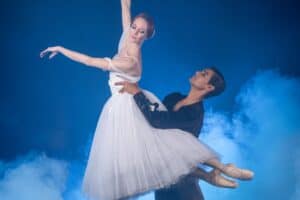Township legend goes that smoking weed that contains a finger nail can cause severe mental illness. Another myth goes that if you have sex in a cemetery then certain mental problems will surely follow.

Communities don’t generally have good relationships with people who suffer from mental illnesses. Those that do get psychiatric help and continue to take medication for the rest of their lives do little to explain their condition. Sometimes vuloyi – loose translation: “witchcraft” – may be offered as a reason for mental instability.
When there’s a sudden change from “normal” to “crazy”, the root cause may be linked to a singular deed, which is how myths and legends are born. Sometimes a calling may be misconstrued as schizophrenia, bipolar disorder or some other mental illness. People with ancestral callings to become sangomas, for intance, are sometimes thought to be mad at first, due to the outbursts that sometimes disrupt their interactions with other people.
“People hear God speaking to them in church. Some here have music in their heads. Sangomas speak to the ancestors. All of these are acceptable but once it moves out of this realm it becomes madness,” says Refiloe Lepere, curator of this year’s Human Rights And Social Justice Season at the Wits Drama For Life festival.
This year’s festival focuses on mental wellness with a view to “changing the conversation on mental health from stigma to free talk”. Various theatrical works will focus on issues around mental wellness.
“Our initial approach with regard to this festival was to go out and talk to students to get their stories on how they deal with mental illness and wellness,” explains Lepere.
“We considered at length how we could perform mental illness without attaching stigmas to it, or make it crude. But we need to create awareness because we have a right to wellness and a right to receive care. We want the community to engage; to be part of the conversation and discuss what mental illness and wellness mean to the them.”
Lepere says the season will visit a number of campuses. “There are a lot of things that students go through in trying to adjust to university life.”
Lepere has also written and directed a play for the festival, titled Heading Out. The piece examines the conversation between a voice and the person who is hearing it. The production explores the life of a person who confronts his voice, with the aim of bringing some normalcy to his everyday life.
At the rehearsal for the two-hander, actors Linda Wa Ka Shabangu and Barileng Malebye worked to find the best way to bring the theme to the stage. Lepere said she approached directing this piece in a way she wouldn’t normally have done.
“Because we are dealing with such a sensitive matter it was vital for me to let the cast find their own way in the play,” she says.
“I told them to find their own level of comfort in terms of how far they wanted to go; to find their safe space so that in a way they could preserve their own sanity. We all had to nurse our own mental health during this process.”
Other works will also be featured during the festival. One is Poet-o-type, by Jefferson Tshabalala, which presents the story of a student wrestling with obsessive compulsive disorder in a dangerous city. Homeostasis by Monique Hill is an interactive performance art piece, which follows some of the difficulties faced by refugees and asylum seekers arriving in South Africa.
Support Local Journalism
Add The Citizen as a Preferred Source on Google and follow us on Google News to see more of our trusted reporting in Google News and Top Stories.








